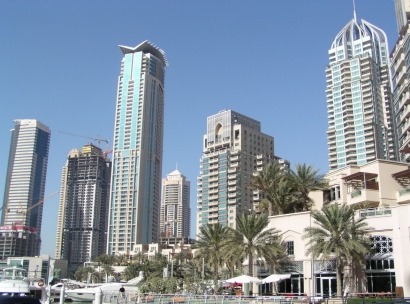
The contract to construct, own and operate the independent power project was awarded by Dubai Electricity and Water Authority (DEWA) to a consortium led by Saudi Arabian water and power developer, operator and owner ACWA Power, and Spanish engineering and construction company TSK earlier in the year. According to the consortium, the project's tariff of 5.84 cents per kilowatt-hour establishes a new global benchmark, reducing the cost of solar electricity by over 20 percent.
The facility will be the largest utility scale solar plant in the Middle East when completed in early 2017. It will produce enough energy to power 30,000 average homes in the UAE and will displace over 469,650 metric tons of carbon dioxide per year.
The project will be powered by over 2.36 million First Solar modules, compared to the 152,880 that were installed in the 13MW first phase. The solar park will be built over 4.5 million square meters, equivalent to around 100 soccer pitches.
“ACWA Power's commitment to deliver reliable and sustainable electricity at the lowest KwH tariff is reflected clearly in the win it has secured in the second phase of the Mohammed bin Rashid Al Maktoum Solar Park” said Paddy Padmanathan, President and Chief Executive Officer, ACWA Power. “The technology we plan to implement has a proven advantage over conventional solar panels, delivering more annual energy for the same nameplate watts under the specific project conditions of the DEWA project. The organic performance growth program that First Solar is developing with their photovoltaic (PV) modules sets a benchmark in the PV industry, allowing us to benefit from a long-term reliable and durable power generation technology for projects of this scale.”
Ahmed S. Nada, Vice President and Region Executive for the Middle East at First Solar, added that the project has effectively driven down the cost of solar electricity, marking a new milestone in solar PV's evolution as a mainstream energy resource.
First Solar has installed over 10 GW of the company’s advanced PV modules worldwide. The modules have been tested to pass accelerated life and stress tests beyond industry standards in order to offer highly predictable energy in all climates and applications. They have also been independently certified for reliable performance in high temperature, high humidity, extreme desert, and coastal environments. The company is aiming to become the leading PV solutions provider in the Middle East, with a projected installed capacity of at least 270MW across the region by 2017.
For additional information:

